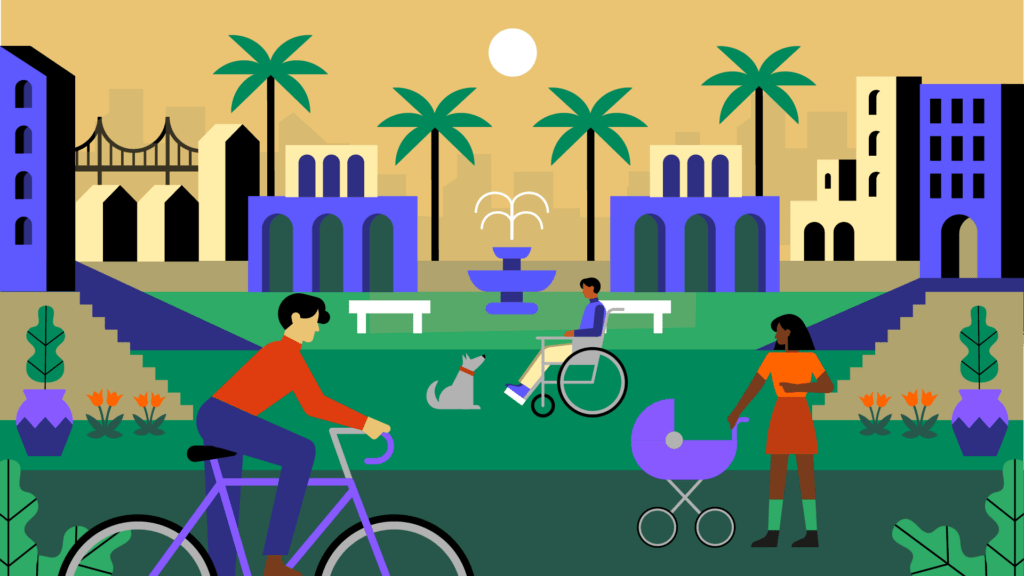
The Twelfth Session of the World Urban Forum (WUF12), convened by the United Nations Human Settlements Programme (UN-Habitat), is taking place in Cairo, Egypt, from 4 to 8 November 2024.
The UIA is present at WUF with a delegation led by Secretary General Rui Leão and is participating in several events to showcase the role of architecture in shaping sustainable urban futures. The UIA delegation is engaging in discussions, panels, and workshops to highlight architectural solutions that promote resilient, inclusive, and affordable cities in alignment with the UN Sustainable Development Goals (SDGs).
Through these events, the UIA aims to strengthen global partnerships, advocate for the profession’s commitment to sustainable urban development, and share best practices that address the challenges of rapid urbanisation, climate resilience, and housing affordability. By collaborating with international stakeholders, the UIA seeks to reinforce the importance of innovative and people-centred design in creating healthier and more equitable urban spaces for all.
In Barcelona, Bogotá, and Beyond: The Best Climate Activist is a Good Urban Planner
On 7 November 2024, from 15:00 to 16:30 at WUF 12 in Cairo, the UIA will host the event “In Barcelona, Bogotá, and Beyond: The Best Climate Activist is a Good Urban Planner.” This SDGs in Action session, co-organised with C40 Cities, Ajuntament de Barcelona, and Alcaldía Mayor de Bogotá, will highlight the critical impact of urban planning on climate action and the shift towards sustainable, resilient cities.
Panel of Distinguished Speakers:
- Rui Leão, Secretary General, UIA
- Hélène Chartier, Director of Urban Planning and Design, C40 Cities
- Frank D’hondt, Secretary General, ISOCARP
- Salvatore Fundarò, Programme Manager, Planning, Finance, and Economy Section, UN-Habitat
- David Martínez, Chief Urban Planner, Ajuntament de Barcelona
- Vanessa Alexandra Velazco, District Secretary of Habitat, Alcaldía Mayor de Bogotá
- Moderated by Sarah El Battouty, UNFCCC High-Level Climate Champion
Session Overview:
Cities are at the forefront of the climate crisis, and the role of the built environment is essential for both human well-being and the planet’s future. This session will underscore the importance of urban planning in climate action and will advocate for a global mobilisation of cities, planners, and architects to accelerate progress.
Event Highlights:
“In Barcelona, Bogotá, and Beyond: The Best Climate Activist is a Good Urban Planner” will offer concrete examples of how city planners around the world are embracing climate-responsive land-use policies and innovative urban design to reverse outdated models. Participants will gain practical insights into the challenges and opportunities cities face when implementing climate-focused urban planning strategies, such as:
- Intergovernmental coordination
- Enforcing urban planning legislation
- Bridging formal and informal planning systems
- Assessing the social and economic impact of land-use policies
- Navigating legal frameworks and stakeholder engagement
Invitation to Participate:
This session invites city leaders, urban planners, and architects to discuss pathways to achieving ambitious climate goals while building resilience and sustainability in cities.
Venue: SDGs in Action – Room B
Format: In-person
Join us at WUF 12 to explore how cities can accelerate their climate mitigation and resilience targets through innovative urban planning and effective policy measures.
Inspiring, Inclusive & Incremental: Building Successful Communities for Resilient, Affordable & Beautiful Housing
The UIA, in partnership with the American Institute of Architects (AIA), organised a training session that brought together regional, local, and national practitioners from government, finance, and design. This event shared effective methodologies and strategies for creating and sustaining resilient communities, fostering a collaborative environment aimed at supporting human development through safety, health, affordability, and beauty.
This international and multidisciplinary workshop advanced the practice of collaborative community building. Participants explored case studies from five continents, presented by architects, national funders, and local team members who had made significant progress towards achieving the SDGs at the local level. Attendees shared their own successes and challenges and engaged in critical discussions about shaping future practices and policies to expand the number of communities meeting the SDGs within the necessary timeframe.
Housing and Spatial Justice in the 21st Century: Social Habitat & Informal Settlements
The UIA, in partnership with the Brazilian Institute of Architects (IAB), organised an SDGs in Action session at the World Urban Forum (WUF12) focused on addressing pressing issues around housing, spatial justice, and the role of informal settlements in urban environments.
Informal settlements were discussed not as temporary phenomena but as integral and enduring parts of existing cities. Architecture, social networks, and economic activities were presented as inherently interwoven within these communities, like the roots and branches of a thriving forest. The session emphasised that improving informal settlements does not involve imposing new models but rather fostering their organic growth to benefit both local and broader urban ecosystems.
As highlighted, millions of people worldwide reside in informal settlements, making these areas vital components of contemporary cities that are often expanding faster than public administrations can plan for. For many economically disadvantaged people, migrants, and refugees, informal settlements provide an essential gateway into urban life, and these communities rapidly develop unique dynamics driven by immediate survival needs.
Attendees explored the Social Habitat Manifesto, launched by the UIA Social Habitat Work Programme, along with innovative solutions being implemented globally. Special attention was given to the challenges faced by some of the world’s most urbanised cities, grappling with the complexities of accelerated urbanisation. The manifesto and discussions aimed to inspire approaches that not only enhance the quality of life within informal settlements but also support sustainable urban growth in alignment with the Sustainable Development Goals (SDGs).